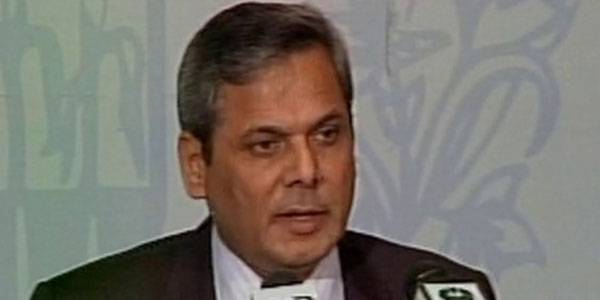ISLAMABAD - Pakistan yesterday said it was the responsibility of the United Nations to resolve the decades-old Kashmir issue as the occupant Indian forces unleashed a wave of state-sponsored terror in the held territory.
Addressing a weekly news briefing here, Foreign Office spokesman Nafees Zakaria also welcomed UN Secretary General Ban Ki-moon’s mediation offer to find solution to the dispute.
Earlier, Ban Ki-moon’s spokesperson Stéphane Dujarric said the UN chief had always welcomed direct discussions between Pakistan and India.
“The Secretary-General’s good offices on any issue is a standing offer for anything that is going on, but good offices work when two parties both ask for the good offices,” he said.
He added that the secretary-general’s good offices were available to Pakistan and India to help them resolve differences but the nations themselves should first ask for such mediation.
Pakistan has raised the issue at all forums after the Indian forces killed dozens of Kashmiris in the recent days. This came after the killing of Kashmiri Hurriyat leader Burhan Wani.
Nafees Zakaria said the UN must act to gets its resolutions implemented on Kashmir as Indian forces were crossing all limits. “The UN is responsible to resolve international disputes. Kashmir is one of them. It is the responsibility of the UN to resolve such issues,” the spokesman said.
He said Pakistan wanted to resolve all outstanding issues including Kashmir with India through talks because for Islamabad “war is not a solution to any issue.”
Zakaria urged the international community to pressurise India to hold talks with Pakistan to resolve the long-pending Kashmir dispute.
“India must know the Kashmiri people cannot be deprived of their right to self-determination for which they have been rendering sacrifices for decades,” he added.
He said Pakistan was effectively taking up the issue with the international community including the Organisation of Islamic Cooperation.
He said the ambassadors of the European Union and P-5 countries were briefed by Foreign Secretary Aizaz Ahmed Chaudhry over the human rights violations by the Indian forces in Kashmir.
Zakaria said Pakistan’s envoys abroad were also briefing the respective governments and human rights organizations on the issue.
Also, Pakistan raised the issue in the United Nations General Assembly, making a clarion call for allowing the oppressed Kashmiri people their UN-pledged right to self-determination to establish peace and security in South Asia.
“The denial of self-determination to the people of Indian Occupied Jammu and Kashmir has resulted in some of the most atrocious human rights violations including rape, torture, arbitrary detentions and summary executions,” Ambassador Maleeha Lodhi said in a high-level thematic debate of the 193-member assembly on human rights at the centre of the global agenda.
“Its most chilling recent example is the extra-judicial killing last week of a Kashmiri leader, Burhan Wani, shot to death by Indian forces along with dozens of other innocent Kashmiris,” the Pakistani envoy told delegates from around the world.
To a question, regarding the statement of Zalmay Khalilzad, a former US diplomat of Afghan-origin, advising the US government to suspend all military and non-education assistance to Pakistan, Zakaria said: “Everyone is cognizant of the credentials of Zalmay Khalilzad and of how seriously he is taken”.
The spokesman said the international community including the US recognised Pakistan’s sacrifices in fight against terrorism and mentioned a recent statement by Senator John McCain who said he was “completely and thoroughly impressed” by the progress made by Pakistan” following his visit to North Waziristan Agency.
Zakaria said: “Pakistan’s resolve on counter-terrorism is unquestionable and the extraordinary success achieved during Zarb-e-Azb operation has put the terrorists on back foot.”
Questioned about the ban imposed by Bangladesh on religious scholar Dr Zakir Naek following a terror incident, the spokesman said Naek was an Indian national and it was up to Bangladesh and India to address the issue and control the people indulging in terrorism.






